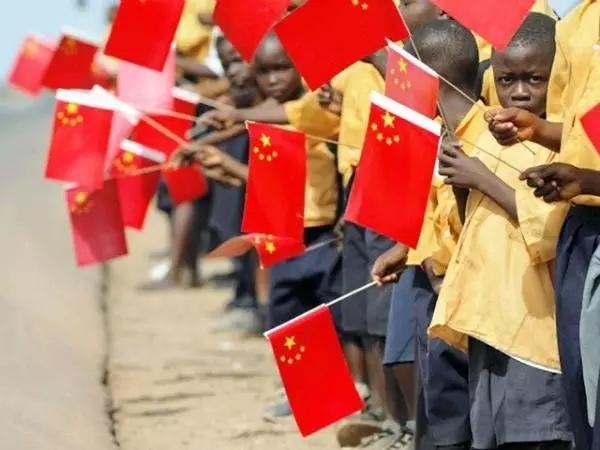Rationality is key to assess Sino-African ties
- By He Wenping
 0 Comment(s)
0 Comment(s) Print
Print E-mail Global Times, August 2, 2016
E-mail Global Times, August 2, 2016
|
|
|
Objective, rational and balanced perspectives are necessary to assessing the rapid development of Sino-African relations. |
A senior fellow at Brookings recently published an article, pointing out the actual share of Chinese investment in Africa as well as its impact on the continent. David Dollar, the research fellow, explained that Chinese investment represents less than 5 percent of the total volume of foreign investment in Africa, defying accusations that China is buying up the continent with an overwhelming amount of capital. His research points out that Chinese investment does not merely focus on natural resource extraction, but can also be seen in the services and manufacturing sectors, especially in small- and medium-sized investment.
Indeed, over the last 15 years, when the economic and trade ties between China and Africa have become increasingly closer, misunderstandings in the West over Sino-African relations have directly led to such widespread biased views against the country as "China's new colonialism in Africa" or "China robbing Africa's natural resources." However, facts speak louder than words. It is gratifying to see that there are foreign scholars and media outlets that make more objective and fact-driven comments on Sino-African relations. In 2010, Deborah Brautigam, then a professor at American University and currently a professor at Johns Hopkins University's School of Advanced International Studies, published The Dragon's Gift: The Real Story of China in Africa, a book which objectively looks at how China has helped African countries tackle poverty and promote development, and which works to analyze and negate the views that gloom-mongers hold toward China's activities in Africa. The book has made a big impact on the international stage.
Objective, rational and balanced perspectives like these are necessary to assessing the rapid development of Sino-African relations.
First, Sino-African developments have not been flawless. Even Chinese scholars refrain from blindly praising the country's achievements in Africa. Many frequently travel to Africa to make field investigations and offer suggestions to policymakers on how to fix current problems. China's engagement with Africa should absolutely not be characterized as "robbing" or "new colonialism." By looking at the thriving relations between China and African countries over the past 15 years, we can conclude that the theory of "China's new colonialism in Africa" runs contrary to the facts and constitutes a real insult to the wisdom and ability of African governments and their people who are actively working to build economic and trade relations with China.
Second, while Sino-African relations do face challenges and problems, the positive impact has been huge. China's engagement has not only helped the continent reduce poverty and promote social and economic development but it also motivates other parts of the world to pay attention to development in Africa. China has also made tremendous contributions to help stabilize the world economy and to achieve the United Nations Millennium Development Goals. Africa's overall economy has grown by an average of 5 percent annually during the past 15 years, in large part due to its closer economic and trade ties with China and BRICS countries as well as other Asian economies. Such ties have also helped the continent recover from negative impacts from the global financial crisis and political unrest in North Africa.
Sustainable growth in Africa's economy mutually contributes to growth in economies worldwide, creating a win-win outcome for all trading partners. According to a report released by the Standard Bank of South Africa in 2013, growth of trade between Africa and BRICS countries outpaced that of other regions around the world. The continent's trade with BRICS countries was estimated to exceed $500 billion in 2015, with trade volume between China and Africa taking up 60 percent of the total.
Third, a forward-looking perspective is required to evaluate the relations between China and Africa. Currently, there are problems to be addressed in China's trade and economic engagement with Africa. For example, Chinese firms should make greater effort to enhance localization and offer more job opportunities for local workers. They should also work to protect emerging industries in Africa and promote trade balance between China and the continent. Both parties need to face these problems and work together to resolve them. At the Johannesburg Summit of the Forum on China-Africa Cooperation in December, Chinese President Xi Jinping proposed 10 major plans to help boost cooperation in the coming three years, along with $60 billion in funding support for the continent, covering areas including agriculture, industry, infrastructure, finance, green development and public sanitation.
Despite China's economic slowdown, the country continues to seek to further ties with Africa and create mutually beneficial opportunities. This shows China's determination to promote Africa's development and work together to tide over difficult times. Such an attitude and courage should deserve respect from the international community, not condemnation.
The author is a senior research fellow at the Charhar Institute and a research fellow at the Institute of West-Asian and African Studies, Chinese Academy of Social Sciences.




Go to Forum >>0 Comment(s)